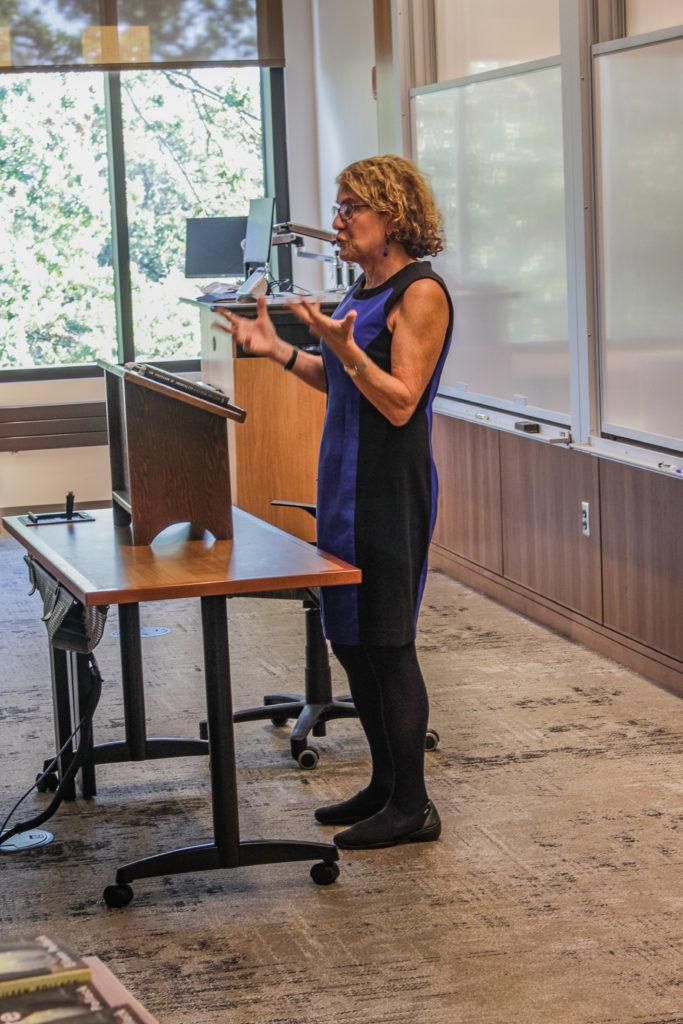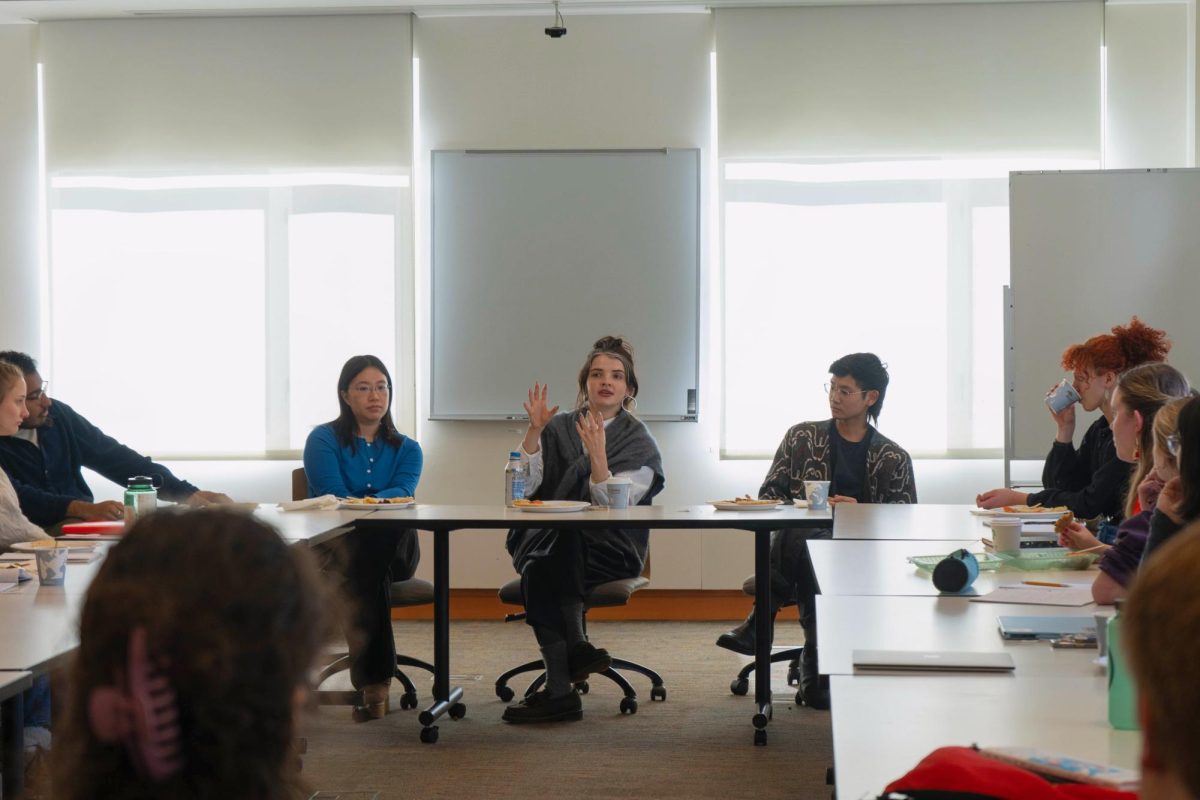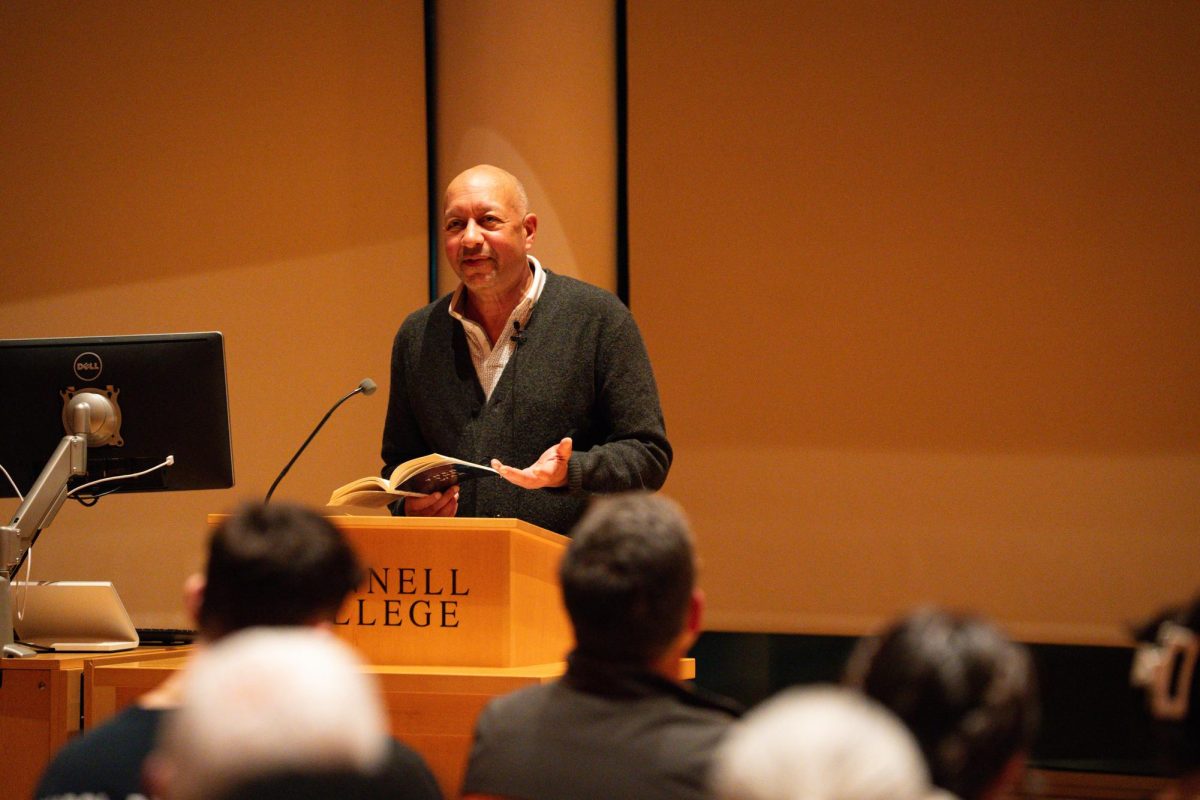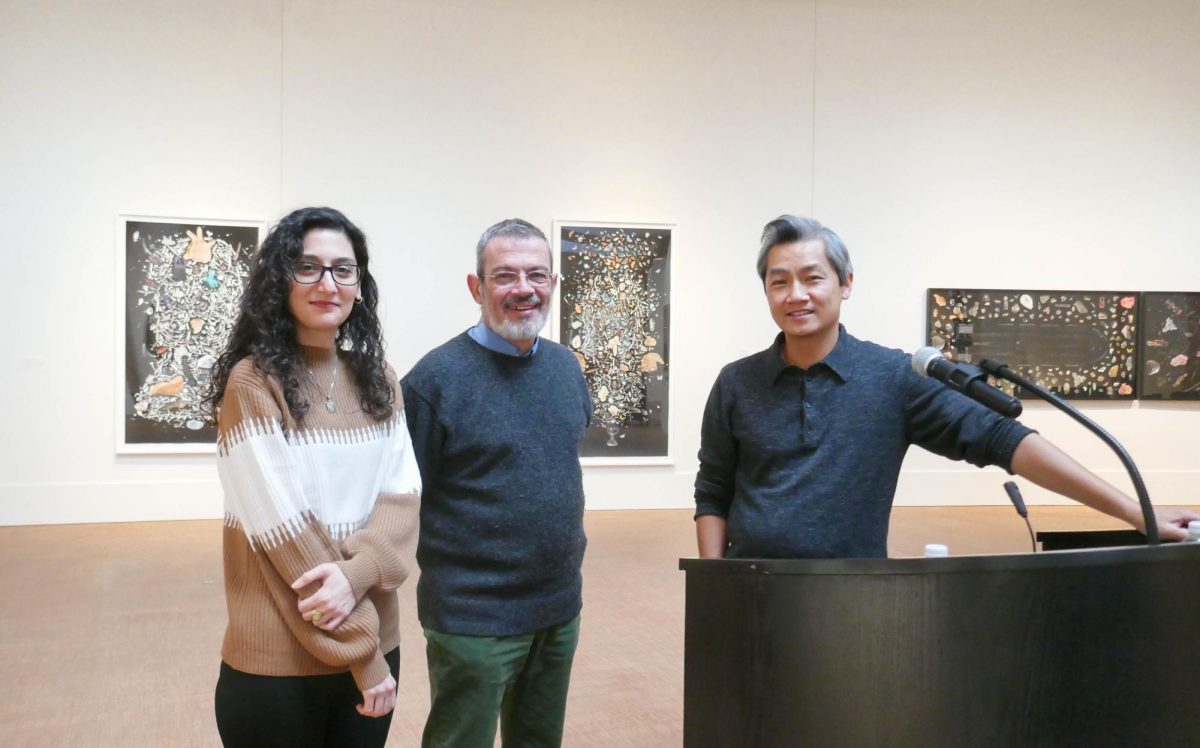
On Monday, Oct. 7, award-winning author Eileen Pollack spent time on campus, lecturing and reading an excerpt from her most recent novel, “The Professor of Immortality.” She is known for writings that span multiple genres, having published novels, short stories and nonfiction pieces.
Pollack’s story as a writer is unique in that she majored in Physics at college and originally thought she would work in the sciences. “I was told that I couldn’t take the science courses in junior high and high school because I was a girl,” said Pollack in an interview after her lecture.
“So, I got really angry and rebelled and said, ‘I’ll show them, right?’ I actually got genuinely really passionate about physics. And I did my degree in that, but toward the end, I, for various reasons, took a creative writing course and I ended up switching.”
Her 2015 nonfiction book “The Only Woman in the Room” tackles her experience in the field of physics and why she ultimately decided to leave it behind. Likewise, Pollack has used much of her written work to challenge gender-based issues that she has encountered.
“I like female narrators,” Pollack said, “because when I was growing up there were so few of them. I liked smart, female narrators, because they were, you know, women who were doing and thinking interesting things, because again, there were so few books to read like that. It was all the men writing, you know, these great books, and it was all male narrators. And so, we wanted some female narrators.”
Following a brief introduction from Assistant Professor of English and Writer-in-Residence Dean Bakopoulos, a former student of hers at the University of Michigan, Pollack addressed an audience of students and professors.
She began by recounting the history of Ted Kaczynski, the man infamously known as the Unabomber, whose life and motivations inspired The Professor of Immortality. With a villain dubbed the ‘Technobomber,’ the novel reimagines the Unabomber’s crimes in the year 2012. The story is told from the perspective of Maxime Sayers, the Technobomber’s former professor, who fears her idealist son has fallen under the criminal’s influence.
After providing context and introducing her novel, Pollack read the first chapter aloud, drawing applause from everyone in attendance. In a Q&A with audience members after the reading, she delved into her process for the novel, answering questions that spanned a range of topics. Most of the discussion focused on how she humanized the villain in her story while also clearly establishing that he was in the wrong.
“I didn’t know when I started, how much compassion these guys deserved,” said Pollack. “I just knew I cared. And it really concerned me enough to sustain me for 7 [to] 8 years to write the novel. I didn’t answer the question, but I feel like I got other people thinking about it too, in a different way.”
She later elaborated, saying, “I was exploring, you know, what about people who are really sensitive to the injustice in the world? Does it always have to end badly, or what can you do about it?”
Pollack also addressed other broader questions about her writing. On her voice as an author, and how she is able to insert messages and meaning into her writing without coming off as didactic, Pollack concluded, “I don’t try to convey anything. I don’t have anything that I can convey except the importance of certain questions. In the course of the characters living around those questions, they come up with certain things they want to say.”
























































